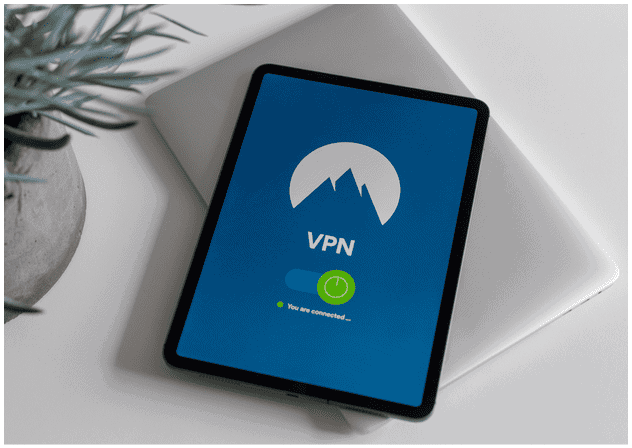A VPN is one of the most important tools that is used for securing your personal data and protecting your privacy online.
What is a VPN?
A VPN, or virtual private network, is an on-demand private tunnel through the internet. It provides a secure and private network connection through the public internet.
Top VPN services let you bypass censorship, content blocks, and website restrictions and hide your IP address when you use the internet and protect your personal data.
VPNs hide your IP address and physical location while encrypting your internet traffic to keep you anonymous so that no one can tell who you are, where you are, or what you’re doing online.
How to use a VPN? A quick guide
How to use a VPN app to instantly encrypt your data and hide your IP address:
- Download and install AVG Secure VPN.
- Open the VPN app on your computer or mobile device.
- Choose a VPN server and connect.
How does a VPN work?
VPNs aren’t just for desktops or laptops — you can set up a VPN on your iPhone, iPad, or Android phone, too.
A VPN works by hiding your IP address and secures your data, preventing others from intercepting it.
It uses encryption protocols to funnel all your internet traffic through an encrypted tunnel — a virtual private network — between your computer and a remote VPN server. Also, VPN connections boost your privacy and security online.
If your not using VPN, all your internet traffic is potentially exposed to your internet service provider (ISP), the government, advertisers, or other people on your network.
What does a VPN do?
There are many benefits of using a VPN.
A VPN lets you:
- Bypass internet censorship. A VPN connection can get you around censorship blocks in the same way it can circumvent content geoblocking and website restrictions.
- Overcome regional content blocks.
- Secure your data over public Wi-Fi networks. free public Wi-Fi often comes with a loss of security. It becomes easy for a hacker to sit on a public Wi-Fi network and intercept all the traffic flowing across it.
- Access blocked websites. Certain websites are blocked in particular scenarios or locations — such as while you’re at school or at work. VPNs get you around content blocks so you can access blocked websites.
- Prevent price discrimination. You can counteract location-based price discrimination by using a virtual private network to give yourself an IP address in another part of the world.
- Prevent ISP tracking. Without a VPN, your ISP (internet service provider) can track all your online activity
VPN also allows you to access a freer internet by letting you choose where you’re located globally. VPNs being versatile, It can give this combination of security and flexibility.
What is VPN Encryption?
VPN encryption is the process of using data encryption (encryption protocols) to create a secure tunnel for your data to travel through. Only your device and the VPN server you’re using can encrypt and decrypt, or unscramble, your data. If anyone examines your VPN connection, they’ll see scrambled data.
There are certain levels of encryption that it’s used by banks and governments worldwide — as well as by AVG Secure VPN that is so secure. Most VPNs use the 256-bit AES (Advanced Encryption Standard) algorithm on business requiring extreme security.
What are VPN protocols?
VPN protocol is a combination of encryption methods and transmission protocols. You can change your VPN protocol in the settings of your VPN app.
A VPN protocol is the set of rules or instructions that create the connection between your device and the VPN’s proxy servers.
Why is online privacy so important?
Personal Information tends to be personal . Without privacy protections, you may be exposing yourself to identity theft and other cybercrimes which is very common nowadays.
The internet is now widely used around the globe. As more people start using smart devices, they risk exposing intimate personal data online. And with ISPs tracking, storing, and selling the browsing history, habits, and behavior of their customers, it’s essential to lock down your private data.
Are VPNs secure?
There’s no doubt that A VPN service is as secure as its protocol. A VPN service is as secure as its protocol. There are many types of VPN that are now trusted by banks and governments around the world to secure their data.
A VPN is not the same as an antivirus tool. While VPNs secure your internet connection, they’re not designed to detect, block, or remove malware. You shouldn’t plan on using a VPN to protect against viruses, ransomware, spyware, or phishing attacks.
Read More: Private Internet Access Features | Advantages of VPN to Business | Proxies Boom | Android VPN Guide
For optimal protection against the full range of internet threats, combine your VPN with a free and comprehensive antivirus solution that can detect and block malware, phishing attacks, and other threats in real time.







